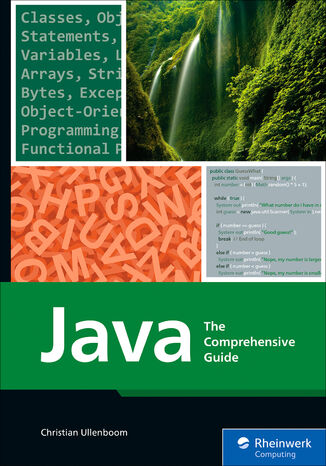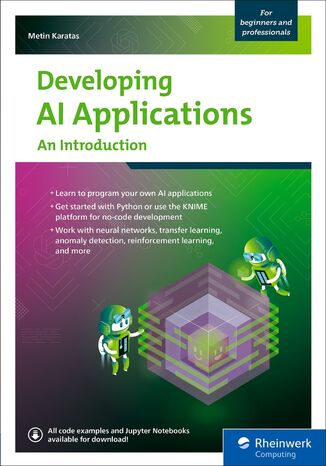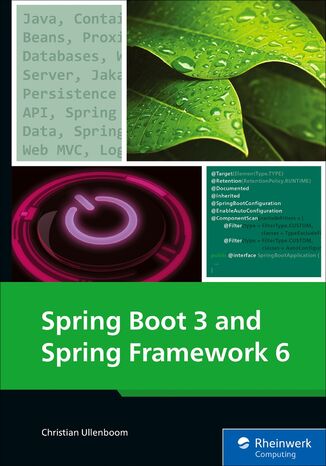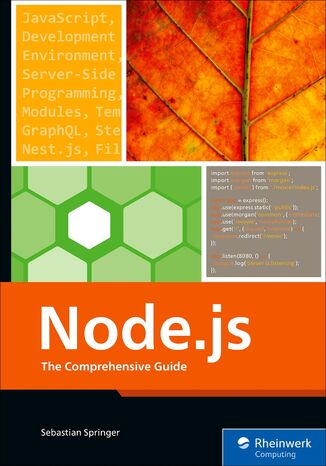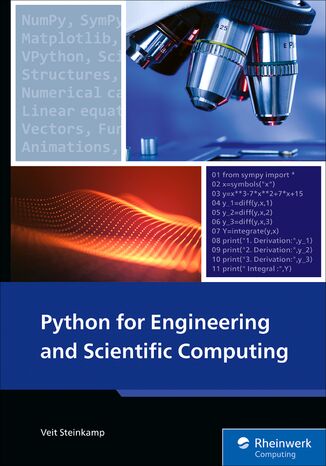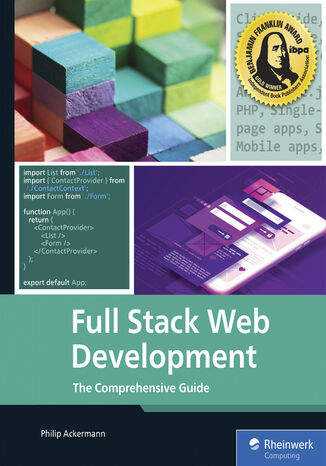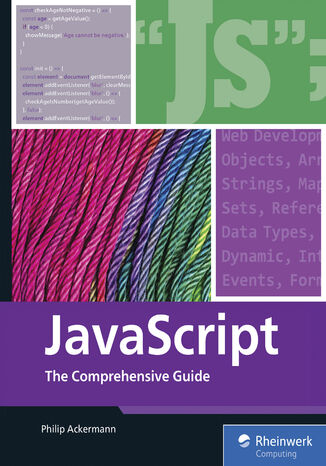Categories
Ebooks
-
Business and economy
- Bitcoin
- Businesswoman
- Coaching
- Controlling
- E-business
- Economy
- Finances
- Stocks and investments
- Personal competence
- Computer in the office
- Communication and negotiation
- Small company
- Marketing
- Motivation
- Multimedia trainings
- Real estate
- Persuasion and NLP
- Taxes
- Social policy
- Guides
- Presentations
- Leadership
- Public Relation
- Reports, analyses
- Secret
- Social Media
- Sales
- Start-up
- Your career
- Management
- Project management
- Human Resources
-
For children
-
For youth
-
Education
-
Encyclopedias, dictionaries
-
E-press
- Architektura i wnętrza
- Health and Safety
- Biznes i Ekonomia
- Home and garden
- E-business
- Ekonomia i finanse
- Esoterecism
- Finances
- Personal finance
- Business
- Photography
- Computer science
- HR & Payroll
- For women
- Computers, Excel
- Accounts
- Culture and literature
- Scientific and academic
- Environmental protection
- Opinion-forming
- Education
- Taxes
- Travelling
- Psychology
- Religion
- Agriculture
- Book and press market
- Transport and Spedition
- Healthand beauty
-
History
-
Computer science
- Office applications
- Data bases
- Bioinformatics
- IT business
- CAD/CAM
- Digital Lifestyle
- DTP
- Electronics
- Digital photography
- Computer graphics
- Games
- Hacking
- Hardware
- IT w ekonomii
- Scientific software package
- School textbooks
- Computer basics
- Programming
- Mobile programming
- Internet servers
- Computer networks
- Start-up
- Operational systems
- Artificial intelligence
- Technology for children
- Webmastering
-
Other
-
Foreign languages
-
Culture and art
-
School reading books
-
Literature
- Antology
- Ballade
- Biographies and autobiographies
- For adults
- Dramas
- Diaries, memoirs, letters
- Epic, epopee
- Essay
- Fantasy and science fiction
- Feuilletons
- Work of fiction
- Humour and satire
- Other
- Classical
- Crime fiction
- Non-fiction
- Fiction
- Mity i legendy
- Nobelists
- Novellas
- Moral
- Okultyzm i magia
- Short stories
- Memoirs
- Travelling
- Narrative poetry
- Poetry
- Politics
- Popular science
- Novel
- Historical novel
- Prose
- Adventure
- Journalism, publicism
- Reportage novels
- Romans i literatura obyczajowa
- Sensational
- Thriller, Horror
- Interviews and memoirs
-
Natural sciences
-
Social sciences
-
School textbooks
-
Popular science and academic
- Archeology
- Bibliotekoznawstwo
- Cinema studies
- Philology
- Polish philology
- Philosophy
- Finanse i bankowość
- Geography
- Economy
- Trade. World economy
- History and archeology
- History of art and architecture
- Cultural studies
- Linguistics
- Literary studies
- Logistics
- Maths
- Medicine
- Humanities
- Pedagogy
- Educational aids
- Popular science
- Other
- Psychology
- Sociology
- Theatre studies
- Theology
- Economic theories and teachings
- Transport i spedycja
- Physical education
- Zarządzanie i marketing
-
Guides
-
Game guides
-
Professional and specialist guides
-
Law
- Health and Safety
- History
- Road Code. Driving license
- Law studies
- Healthcare
- General. Compendium of knowledge
- Academic textbooks
- Other
- Construction and local law
- Civil law
- Financial law
- Economic law
- Economic and trade law
- Criminal law
- Criminal law. Criminal offenses. Criminology
- International law
- International law
- Health care law
- Educational law
- Tax law
- Labor and social security law
- Public, constitutional and administrative law
- Family and Guardianship Code
- agricultural law
- Social law, labour law
- European Union law
- Industry
- Agricultural and environmental
- Dictionaries and encyclopedia
- Public procurement
- Management
-
Tourist guides and travel
- Africa
- Albums
- Southern America
- North and Central America
- Australia, New Zealand, Oceania
- Austria
- Asia
- Balkans
- Middle East
- Bulgary
- China
- Croatia
- The Czech Republic
- Denmark
- Egipt
- Estonia
- Europe
- France
- Mountains
- Greece
- Spain
- Holand
- Iceland
- Lithuania
- Latvia
- Mapy, Plany miast, Atlasy
- Mini travel guides
- Germany
- Norway
- Active travelling
- Poland
- Portugal
- Other
- Przewodniki po hotelach i restauracjach
- Russia
- Romania
- Slovakia
- Slovenia
- Switzerland
- Sweden
- World
- Turkey
- Ukraine
- Hungary
- Great Britain
- Italy
-
Psychology
- Philosophy of life
- Kompetencje psychospołeczne
- Interpersonal communication
- Mindfulness
- General
- Persuasion and NLP
- Academic psychology
- Psychology of soul and mind
- Work psychology
- Relacje i związki
- Parenting and children psychology
- Problem solving
- Intellectual growth
- Secret
- Sexapeal
- Seduction
- Appearance and image
- Philosophy of life
-
Religion
-
Sport, fitness, diets
-
Technology and mechanics
Audiobooks
-
Business and economy
- Bitcoin
- Businesswoman
- Coaching
- Controlling
- E-business
- Economy
- Finances
- Stocks and investments
- Personal competence
- Communication and negotiation
- Small company
- Marketing
- Motivation
- Real estate
- Persuasion and NLP
- Taxes
- Social policy
- Guides
- Presentations
- Leadership
- Public Relation
- Secret
- Social Media
- Sales
- Start-up
- Your career
- Management
- Project management
- Human Resources
-
For children
-
For youth
-
Education
-
Encyclopedias, dictionaries
-
E-press
-
History
-
Computer science
-
Other
-
Foreign languages
-
Culture and art
-
School reading books
-
Literature
- Antology
- Ballade
- Biographies and autobiographies
- For adults
- Dramas
- Diaries, memoirs, letters
- Epic, epopee
- Essay
- Fantasy and science fiction
- Feuilletons
- Work of fiction
- Humour and satire
- Other
- Classical
- Crime fiction
- Non-fiction
- Fiction
- Mity i legendy
- Nobelists
- Novellas
- Moral
- Okultyzm i magia
- Short stories
- Memoirs
- Travelling
- Poetry
- Politics
- Popular science
- Novel
- Historical novel
- Prose
- Adventure
- Journalism, publicism
- Reportage novels
- Romans i literatura obyczajowa
- Sensational
- Thriller, Horror
- Interviews and memoirs
-
Natural sciences
-
Social sciences
-
Popular science and academic
-
Guides
-
Professional and specialist guides
-
Law
-
Tourist guides and travel
-
Psychology
- Philosophy of life
- Interpersonal communication
- Mindfulness
- General
- Persuasion and NLP
- Academic psychology
- Psychology of soul and mind
- Work psychology
- Relacje i związki
- Parenting and children psychology
- Problem solving
- Intellectual growth
- Secret
- Sexapeal
- Seduction
- Appearance and image
- Philosophy of life
-
Religion
-
Sport, fitness, diets
-
Technology and mechanics
Videocourses
-
Data bases
-
Big Data
-
Biznes, ekonomia i marketing
-
Cybersecurity
-
Data Science
-
DevOps
-
For children
-
Electronics
-
Graphics/Video/CAX
-
Games
-
Microsoft Office
-
Development tools
-
Programming
-
Personal growth
-
Computer networks
-
Operational systems
-
Software testing
-
Mobile devices
-
UX/UI
-
Web development
-
Management
Podcasts
Rheinwerk Publishing, Inc, Christian Ullenboom
This comprehensive guide introduces readers to Java programming from the ground up, beginning with the language’s history, installation, and core syntax. Early chapters cover imperative programming concepts, object-oriented principles, and essential data types like arrays and strings. As the journey progresses, readers explore custom classes, inheritance, interfaces, exceptions, and nested types, building a solid foundation in Java’s structure and design.Midway, the book dives into advanced topics such as generics, lambda expressions, functional programming, and concurrency. Readers gain practical knowledge of modern Java features including module systems, the extensive Java class library, and the nuances of thread management. The coverage also extends to data structures, algorithms, file I/O, and database connectivity with JDBC, empowering readers to handle real-world programming challenges with confidence.The final sections focus on testing with JUnit, software design patterns, and Java development tools, equipping readers with skills to write clean, maintainable, and efficient code. Throughout this journey, the book emphasizes practical examples and best practices, making it an indispensable resource for learners aiming to master Java from basics to advanced professional techniques.
Developing AI Applications. An Introduction
Rheinwerk Publishing, Inc, Metin Karatas
This book opens with a clear introduction to AI fundamentals, covering its history and key concepts while guiding readers through installing essential tools like KNIME and AutoKeras. It begins by building a strong foundation in artificial neural networks and decision trees, enabling readers to grasp core AI methods. The journey then advances to convolutional layers for image classification, transfer learning, and anomaly detection, offering practical, beginner-friendly examples.As the reader progresses, the book explores text classification, cluster analysis, and automated AI model creation with AutoKeras. Visual programming with KNIME is introduced to simplify complex AI workflows. Further chapters cover reinforcement learning and genetic algorithms, expanding the reader’s skill set and preparing them for more advanced challenges. Hands-on exercises throughout reinforce concepts and practical application.In its final chapters, the guide dives into cutting-edge AI tools by demonstrating how to leverage ChatGPT and DALL-E APIs, including prompt engineering and API programming. It concludes with an outlook on the future of AI, equipping readers with the knowledge and confidence to build and deploy their own AI-powered applications from start to finish.
Spring Boot 3 and Spring Framework 6. The Comprehensive Guide to Modern Java Development
Rheinwerk Publishing, Inc, Christian Ullenboom
This book takes readers on a comprehensive journey through Spring Boot 3 and Spring Framework 6, starting with the essentials of dependency injection and Spring-managed containers. It then explores core modules and proxies to establish a strong foundation for Java application development. Early chapters guide readers through configuring Spring Boot projects and managing dependencies efficiently.The middle sections focus heavily on database integration, including relational databases using Spring JDBC, Jakarta Persistence, and advanced Spring Data JPA techniques. Readers will also learn to work with NoSQL databases like MongoDB and Elasticsearch, enhancing their ability to handle various data storage solutions. The book covers the development of web applications using Spring MVC, RESTful API design, and securing web endpoints.The final chapters emphasize application monitoring with Spring Boot Actuator, logging strategies, and practical deployment options including containerization. Alongside the core content, a dedicated migration chapter assists developers transitioning from Spring Boot 2 to version 3, ensuring they stay current with evolving best practices. This structured approach prepares readers to confidently build, monitor, and deploy modern, production-ready Java applications.
Node.js. The Comprehensive Guide
Rheinwerk Publishing, Inc, Sebastian Springer
This comprehensive guide begins by introducing the core principles of Node.js, covering installation, environment setup, and modular programming. Readers then build foundational skills by creating their first applications and exploring essential web technologies like HTTP and popular frameworks such as Express and Nest. The journey continues into advanced topics like template engines, database integration, and authentication techniques, equipping readers to build full-featured web applications.As readers progress, the book delves into building RESTful and GraphQL APIs, real-time applications with WebSockets, and writing type-safe Node.js code using TypeScript. Later chapters explore command-line tools, asynchronous programming with Promises and RxJS, streams, and file handling. Comprehensive sections on package management, quality assurance, testing, and security provide practical insights to produce robust, maintainable software.The final chapters focus on deploying scalable applications, performance optimization, microservices architecture, and introduce the emerging Deno runtime. Throughout the book, detailed examples and step-by-step explanations guide readers from fundamental concepts to advanced techniques, making this an essential resource for developers seeking mastery of server-side JavaScript development with Node.js.
Git. Project Management for Developers and DevOps Teams
Rheinwerk Publishing, Inc, Bernd Öggl, Michael Kofler
This practical guide is designed to take you from Git beginner to advanced user. Starting with installation and configuration, it covers the essential Git commands you'll need to create and manage repositories, track changes, and work with branches and commits. These fundamental concepts set the stage for more complex workflows and efficient version control management.The book then explores advanced features, such as using platforms like GitHub and GitLab for remote repositories. You'll learn how to collaborate with others through pull requests, set up continuous integration pipelines, and implement automation using hooks. The guide also includes advanced techniques like rebasing and working with submodules, helping you streamline your workflow and manage larger projects effectively.The final sections focus on troubleshooting common Git errors, from merge conflicts to authentication issues. Practical solutions and best practices ensure you can resolve problems quickly and efficiently. The book wraps up with a comprehensive Git command reference, making it a go-to resource for both new users and experienced developers. Whether you're working solo or in teams, this book will help you master version control with confidence.
Rheinwerk Publishing, Inc, Veit Steinkamp
This book provides a thorough introduction to Python programming designed for engineers and scientists. It begins with foundational topics like development environments and program structures, then introduces key Python libraries such as NumPy, SymPy, SciPy, Matplotlib, and VPython. Clear explanations and practical exercises help readers write efficient, well-structured code while progressing through increasingly complex projects.The content covers core programming paradigms including functions, branching, and object-oriented design, followed by numerical analysis with NumPy and symbolic math with SymPy. Detailed chapters on data visualization with Matplotlib and 3D animations with VPython enhance comprehension. Additional focus on statistical computations, Boolean algebra, and interactive GUI programming with Tkinter prepares readers for real-world applications. Each chapter ends with project tasks reinforcing hands-on learning.Throughout the book, readers build a strong skill set combining programming expertise and scientific problem-solving. By the end, they will confidently use Python’s libraries to solve diverse engineering and scientific challenges. This practical, project-based approach ensures knowledge is both solid and immediately useful in research and professional work.
Full Stack Web Development. Mastering Web Development from Client to Server-Side Technologies
Rheinwerk Publishing, Inc, Philip Ackermann
This book offers a comprehensive guide to full stack web development, covering everything from core web technologies to advanced topics. The early chapters introduce foundational concepts like client-server relationships, HTML, CSS, and JavaScript. Readers learn how to build static and dynamic web pages, gaining a solid grounding in front-end development.As the book progresses, it delves into more advanced areas such as structuring applications, databases, and server-side programming using frameworks like Node.js and PHP. Practical examples, such as building web servers and handling data, help readers apply their skills in real-world scenarios, bridging the gap between theory and practice.The later chapters address crucial topics like web security, performance optimization, and project management. Readers are introduced to modern practices like Docker, microservices, and Agile project management, equipping them to handle scalable, secure applications. By the end, readers will have a holistic understanding of how to build, secure, and deploy full stack applications, making this book ideal for both beginners and experienced developers seeking to refine their skills.
JavaScript. Mastering JavaScript from Basics to Advanced Topics
Rheinwerk Publishing, Inc, Philip Ackermann
This book provides a comprehensive introduction to JavaScript and web development, starting with the basics of programming and progressing through advanced topics. The initial chapters introduce JavaScript, exploring its history, its relationship with HTML and CSS, and how to integrate it into web pages. Readers will learn to create and manipulate variables, data types, and operators while controlling the flow of programs using loops and functions.As the book advances, it covers more complex concepts like working with objects, arrays, and strings, and introduces modern web APIs, such as Ajax, Fetch API, and browser storage methods. Additional chapters focus on object-oriented and functional programming, emphasizing JavaScript’s versatile capabilities.Later sections explore asynchronous programming, server-based applications with Node.js, and creating mobile and desktop applications using frameworks like React Native and Electron. There is also a focus on controlling microcontrollers using JavaScript, automating tasks with Grunt and Gulp, and managing source code through Git, providing a full-stack development approach with JavaScript at its core.

